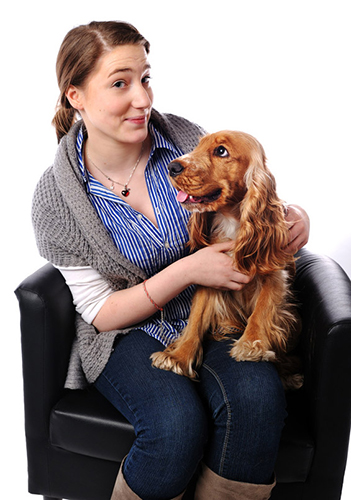
Does your pet’s mouth smell not so sweet?
A bad odor can be a sign of serious problems for your pet, such as periodontal disease or oral or systemic infection. So discuss your pet’s problem with your veterinarian.
Common mouth myths: true or false?
Pets are supposed to have bad breath.
False. An odor is not normal. Just like in people, bad breath in pets is often a sign of dental disease and requires treatment to safeguard your pet’s health.
Pets don’t need regular oral hygiene.
False. Even with regular dental cleanings at your veterinary practice, your pet still needs regular tooth brushing to keep his breath sweet and his pearly whites sparkling.
Pets’ mouths clean themselves.
False. While there are some natural enzyme systems at work in your pet’s mouth, it will not keep your pet’s mouth clean. Debris builds up on your pet’s teeth and requires brushing or rubbing to keep the mouth fresh.
Cats don’t need dental care.
False. Cats and small-breed dogs often require more dental care then larger-breed dogs.
Cats have stinky breath because they eat smelly foods.
False. An odor in your cat’s mouth is a sign of a health problem, and you should discuss your pet’s problem with your veterinarian.
Prevention: The best medicine
You can prevent bad breath and dental disease with regular oral care. Your veterinarian recommends daily tooth brushing. This is the best way to keep your pet’s mouth healthy. You may also use daily oral hygiene rinses, dental diets, water additives, and safe chew toys to keep your pet’s mouth clean.
Remember, the more home care that you offer to prevent dental disease, the less care your veterinarian will need to provide to treat problems in the future.
Signs your pet is suffering from dental disease
- Bad breath
- Red gums (healthy gums are a pink, shrimp-like color)
- Pus oozing from gums
- Facial swelling
- Yellow or brownish buildup on the teeth
- Pain
Another clue that your pet may be in pain is if it goes to the food bowl and backs away as if scared or drops food from its mouth.
Treatment: What your veterinarian will do.
Your veterinarian will conduct a thorough head-to-toe exam as well as a comprehensive oral exam. If the doctor identifies signs of dental disease, he or she may recommend preanesthetic testing. This may include blood work and an electrocardiogram to see whether your pet is a candidate for anesthesia.
It is necessary for your pet to be anesthetized for your veterinarian to fully diagnose the source of the problem and take steps to correct it.
Remember, untreated dental problems in pets have been linked to serious medical problems, including heart, liver, and kidney disease. So if you notice bad breath or other signs of dental isease, schedule an appointment with your veterinarian.
